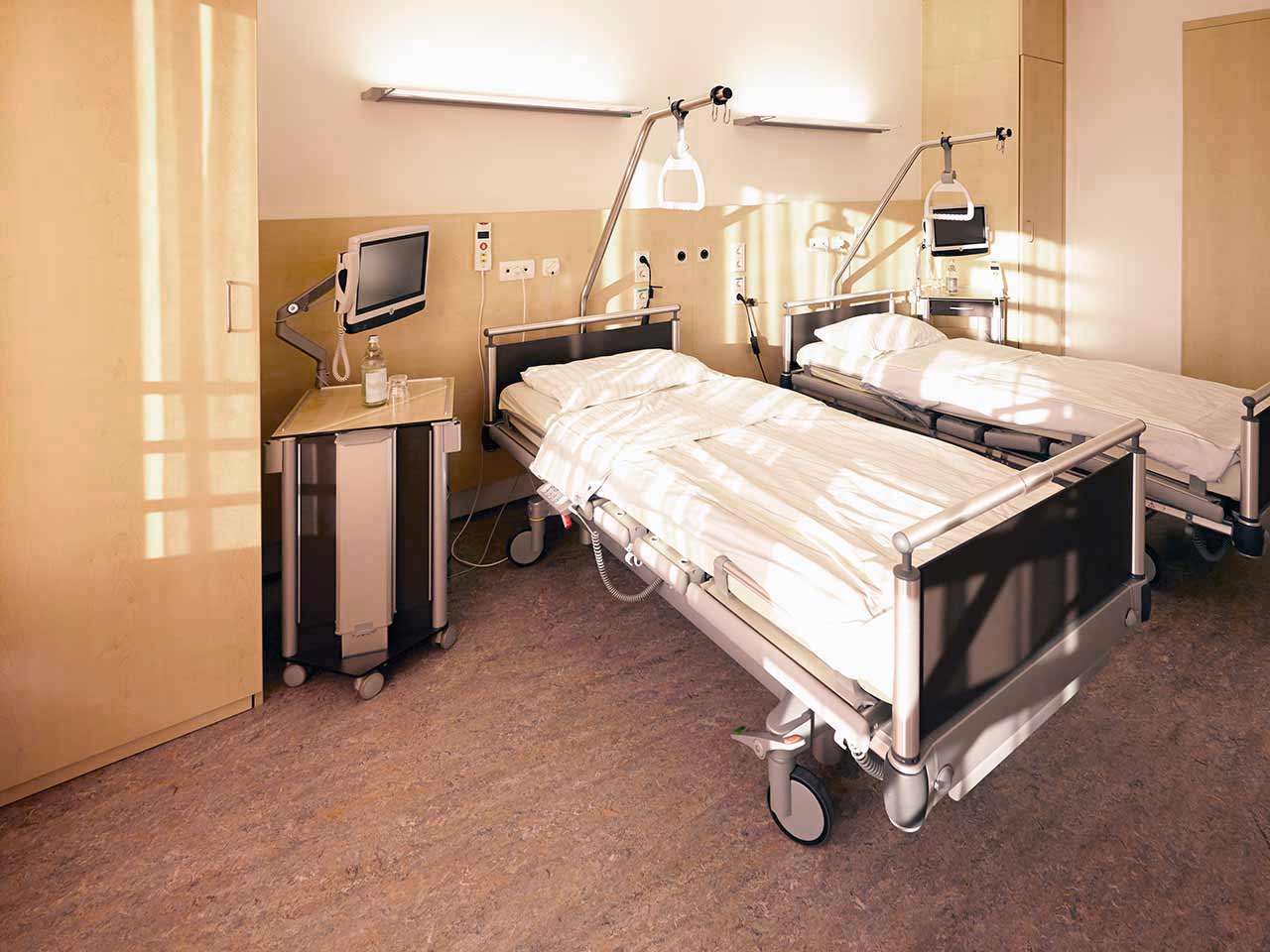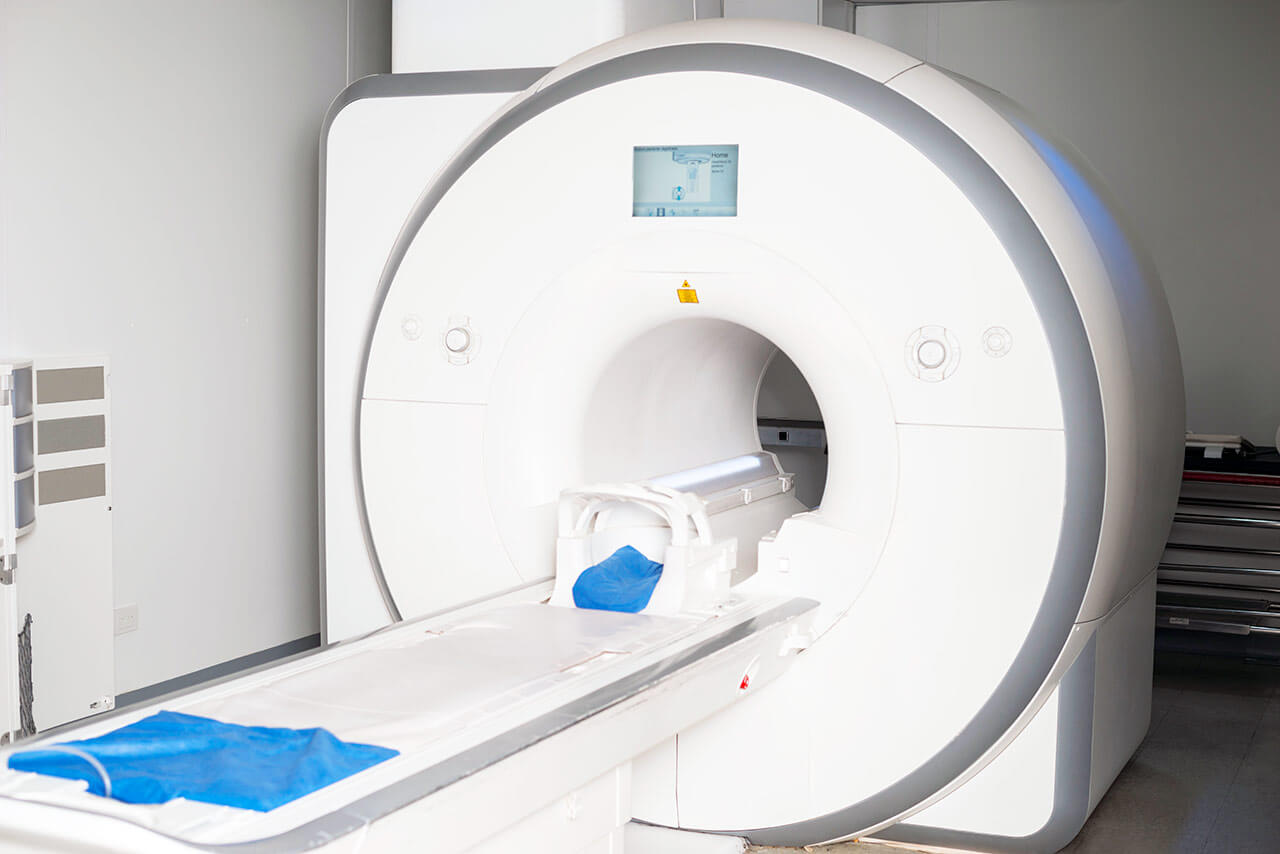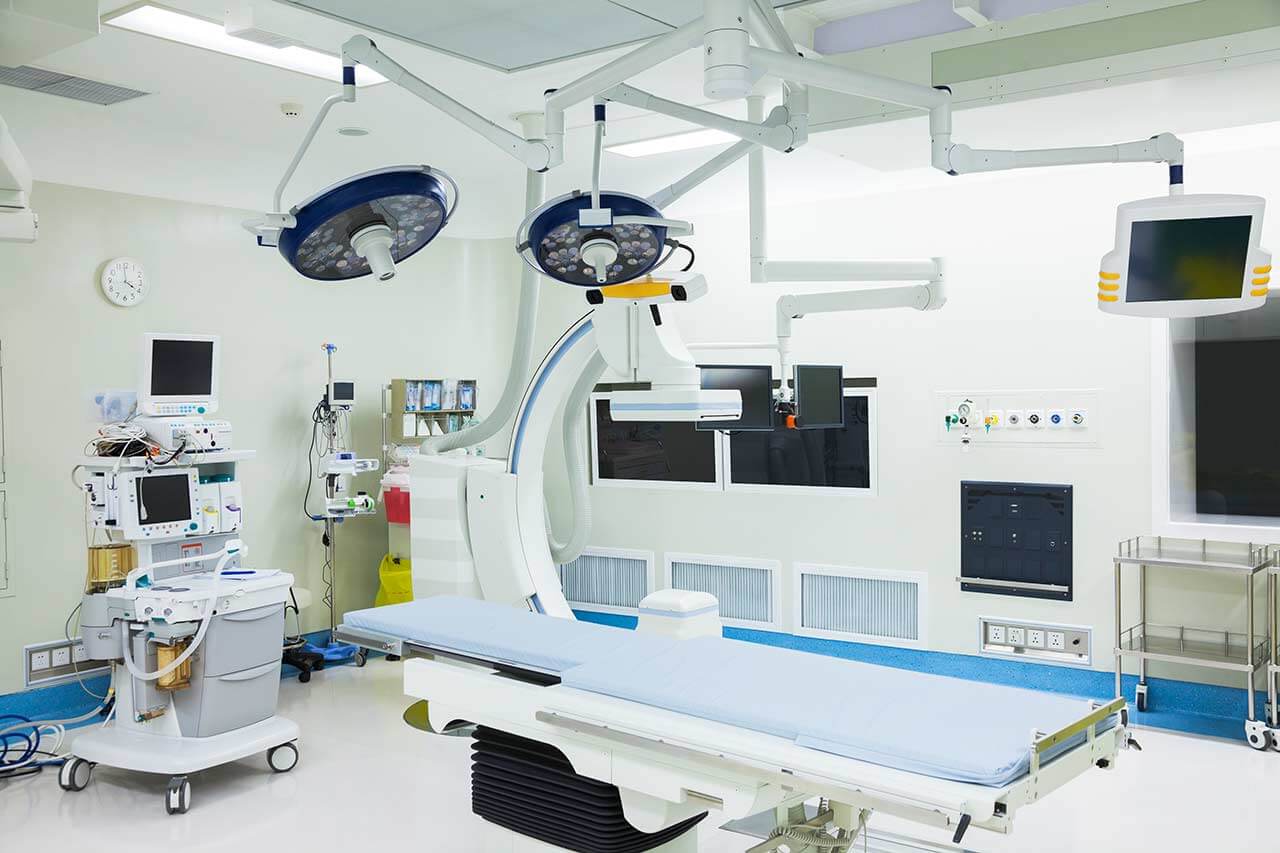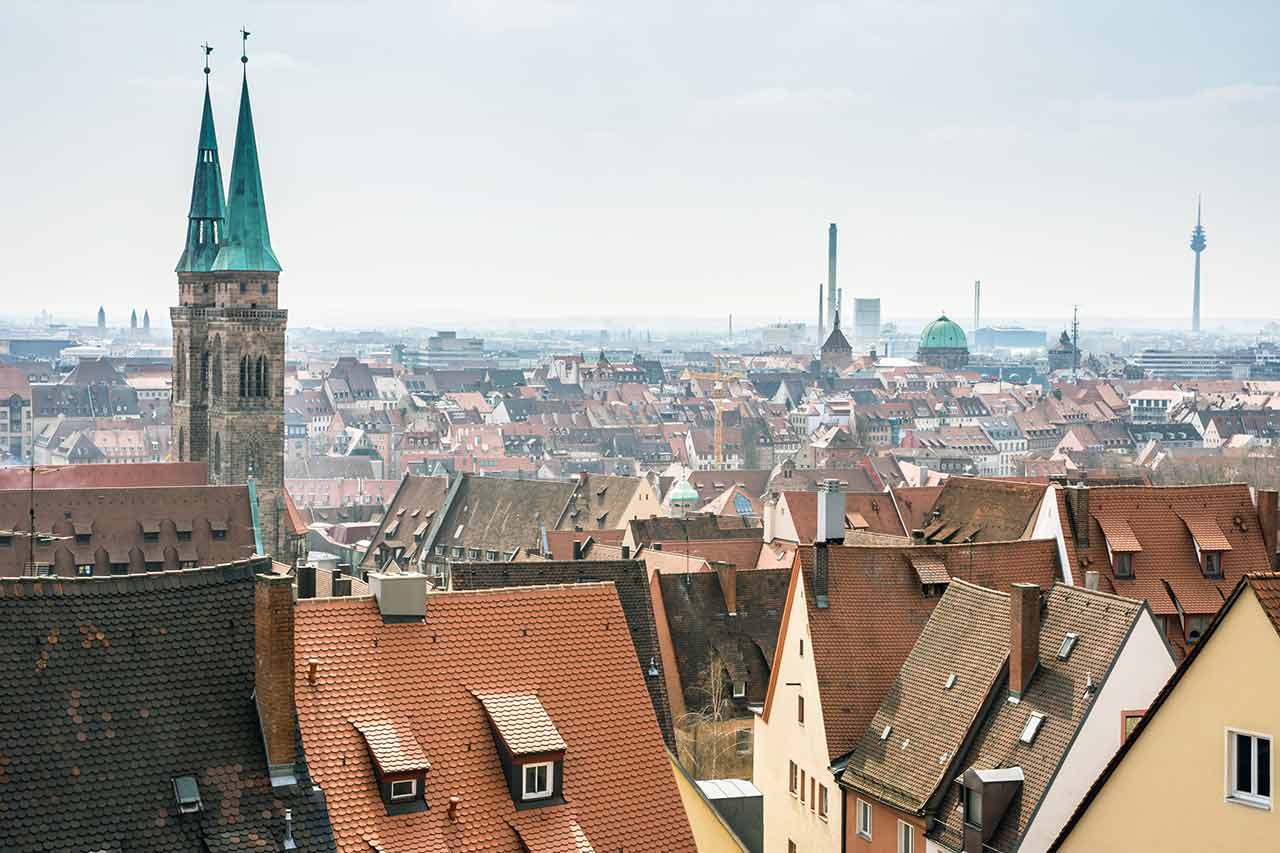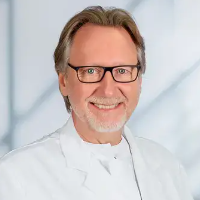
The program includes:
- Initial presentation in the clinic
- clinical history taking
- physical examination
- dermatological skin examination
- laboratory tests:
- complete blood count
- biochemical analysis of blood
- tumor markers
- inflammation indicators
- indicators blood coagulation
- preparation according to preoperative standard
- surgical tumor resection with plastic defect reconstruction
- histological examination
- full hospital accommodation
- cost of required medications
- nursing staff services
- explanation of future recommendations
Required documents
- Medical records
- Biopsy results (if available)
Service
You may also book:
 BookingHealth Price from:
BookingHealth Price from:
About the department
The Department of Aesthetic, Plastic and Reconstructive Surgery, Reconstructive Burn Surgery and Hand Surgery at the Nuremberg Hospital offers the full range of surgical interventions in these medical fields. The department includes a specialized Burn Center, where patients with burn injuries can receive medical care. In the field of hand surgery, the department admits patients with diseases, injuries, and malformations of the hand. Of particular interest is breast plastic surgery, such as breast augmentation, breast reduction, and breast lift. The department's surgeons also successfully perform skin lift surgeries in the abdomen, arms, and thighs after weight loss. Another area of competence for the department's plastic surgeons is liposuction for patients with severe forms of lipedema. Minimally invasive surgical techniques are widely used during interventions, thanks to which the risks to the patient's health are practically eliminated and a good aesthetic result is ensured. The team of surgeons at the medical center admits more than 3,000 patients every year. Surgical procedures are most often performed on an outpatient basis without a mandatory hospital stay. The specialists make every effort to provide each patient with top-class medical service. The department is headed by Prof. Dr. med. Bert Reichert.
An important focus of the department's team of surgeons is breast plastic surgery. The specialists have vast experience in breast augmentation, breast reduction, and breast lifts. Such surgical interventions are performed here for both medical and aesthetic reasons. Breast augmentation surgery is the most popular, which women usually resort to when wanting to improve their appearance. The department offers the following two options for breast augmentation: plastic surgery using silicone implants and lipofilling (injection of the patient's autologous adipose tissue to restore the breast volume). In cases of lipofilling, surgeons most often use adipose tissue from the abdomen or thighs (liposuction).
Prior to breast augmentation surgery, the surgeon holds a consultation, during which the patient tells the doctor about her wishes and the doctor offers options, talks in detail about the upcoming operation, and prescribes a set of diagnostic tests to exclude any health risks. If silicone implants have been chosen at the preparation stage for plastic surgery, the surgeon, along with the patient, selects the optimal size and shape of the implant. The intervention is performed under general anesthesia and usually lasts 1-2 hours. Minimally invasive techniques are used during breast augmentation surgery. A surgical approach for implant placement is created in the inframammary fold, areola, or armpit.
The department has gained long and successful experience in lipedema surgery. This pathology is characterized by an abnormal distribution of adipose tissue, leading to excessive fatty deposits on the thighs, lower legs, and ankles. Lipedema affects only women. First of all, pathology is an aesthetic problem, but it also has clinical symptoms such as pain syndrome, hematoma formation, varicose veins, etc. In the early stages of lipedema, doctors provide conservative treatment, including physiotherapy, walking, swimming, psychotherapy, etc. The last-line treatment is a surgical procedure called liposuction, during which a plastic surgeon removes fatty deposits in the areas of the body affected by lipedema. The surgical intervention is performed under general anesthesia using minimally invasive surgical techniques. In many cases, several liposuction procedures may be required to achieve optimal therapeutic outcomes. Following liposuction, the problem of sagging skin in the areas where the fatty deposits have been removed often arises, so an additional skin lift procedure is recommended for the patient. Surgical treatment is complemented by physiotherapy, normalization of nutrition, and psychotherapy.
The department houses an advanced Burn Center, which is one of the largest in Germany. The medical facility includes an intensive care unit with 8 beds and an in-house operating room. The team of doctors at the center specializes in the treatment of severe burns and their complications, including scar revision and the treatment of functional disorders. The health facility annually treats more than 100 patients with severe burns from flames, hot liquids, chemicals, and explosions. The doctors have vast experience in the treatment of facial burn injuries, which require high competence and special professional skills.
Hand surgery is an integral part of the department's work. Microsurgical interventions for various hand diseases, injuries, and malformations are successfully performed in the operating rooms at the medical facility. The primary focus of the surgeons' work in this area is the treatment of carpal tunnel syndrome, which causes nerve compression in the wrist. In many cases, doctors can help the patient without surgery by prescribing medications and special splints. A surgical procedure may be performed only in complex cases. Whenever possible, preference is given to endoscopic surgical techniques, but the department's surgeons also perform operations for carpal tunnel syndrome using classic open techniques. A surgeon determines the optimal type of surgery depending on the patient's clinical data.
The department's clinical focuses include:
- Aesthetic, plastic and reconstructive surgery
- Breast plastic surgery
- Breast augmentation
- Breast reduction
- Breast lift
- Liposuction for lipedema
- Skin lift surgery
- Abdominoplasty
- Arm lift and thigh lift
- Reconstructive plastic surgery after malignant tumor resection
- Breast plastic surgery
- Reconstructive burn surgery (treatment of burns of all degrees of severity and their complications)
- Treatment of flame burns
- Treatment of hot liquid burns
- Treatment of blast-related burns
- Treatment of chemical burns
- Treatment of electrical burns
- Hand surgery
- Surgery for carpal tunnel syndrome
- Surgery for Dupuytren's contracture
- Finger replantation
- Other medical services
Curriculum vitae
Higher Education, Postgraduate Training and Professional Career
- Medical studies at the Hannover Medical School.
- 1984 Doctorate and admission to medical practice.
- 1984 - 1985 Military doctor.
- 1993 Board certification in Surgery.
- 1996 Board certification in Plastic Surgery.
- 1997 Board certification in Hand Surgery.
- Managing Senior Physician, Department of Plastic Surgery, Hospital Maria Hilf Stadtlohn.
- Senior Physician and Deputy Head of the Department of Plastic Surgery, University Hospital Luebeck.
- Board certification in Plastic and Aesthetic Surgery.
- 2003 Habilitation and PD title.
- Since 2004 Head Physician of the Department of Aesthetic, Plastic and Reconstructive Surgery, Reconstructive Burn Surgery and Hand Surgery at the Nuremberg Hospital.
- 2012 Invitation to the position of Extraordinary Professor, University of Regensburg.
- 2014 Professorship at the Paracelsus Private Medical University.
Clinical Focuses
- Surgical treatment of soft tissue tumors.
- Reconstructive plastic surgery using microsurgical techniques.
- Surgical interventions on the peripheral nervous system.
- Treatment of Dupuytren's contracture.
- Body contouring surgery.
- Correction of age-related changes.
Memberships in Professional Societies
- German Dupuytren's Contracture Society (Member of the Scientific Advisory Board).
- German Society of Surgery (DGCH).
- German Society for Hand Surgery (DGH).
- German Society for Senology (DGS).
- Former President of the German Burn Society for Burn Treatment (DGV).
- German Society of Plastic, Reconstructive and Aesthetic Surgeons (DGPRÄC).
- European Dupuytren's Contracture Society (Member of the Advisory Board).
- North-West German Association of Surgeons.
- German-speaking Working Group on Peripheral Nerve and Vascular Microsurgery (DAM).
Photo of the doctor: (c) Klinikum Nürnberg
About hospital
According to the reputable Focus magazine, the Nuremberg Hospital ranks among the top German medical facilities!
The hospital is one of the largest, highly specialized medical centers in Europe and positions itself as the maximum care hospital. The healthcare facility is an academic hospital of the Paracelsus Medical University in Nuremberg. It houses 42 departments, institutes, and highly specialized centers focusing on various medical fields. All the hospital's employees work hand in hand for the benefit of their patients. The specialists strive to provide top-class medical care for every patient. Moreover, the medical team always shows a humane attitude and understanding towards the patient's life situation, making every effort to support them during the entire therapeutic process.
The total number of beds in the hospital is 2,233. The medical team consists of more than 8,400 employees, including many world-famous doctors and professors who had their clinical training at the best medical facilities in Germany, other European countries, and the USA. The hospital admits more than 100,000 inpatients and more than 170,000 outpatients annually. The number of patients who come to the hospital steadily increases every year, which is the best confirmation of its high standards and outstanding treatment results.
The cornerstone of successful clinical practice is state-of-the-art technical infrastructure. The hospital offers its patients innovative technologies such as the Da Vinci surgical system, devices for stereotactic procedures, intraoperative radiation therapy, angiography, PET CT devices, high-intensity focused ultrasound, 64-slice CT scanners, and other advanced medical devices. The combination of cutting-edge technical facilities and the high competence of the physicians allows for the provision of effective treatment even in the most complex cases.
The Nuremberg Hospital is undoubtedly one of Germany's leading medical facilities, where patients benefit from modern infrastructure, precise diagnostics, effective treatment, and responsive care.
Photo: (с) depositphotos
Accommodation in hospital
Patients rooms
The patients at the Nuremberg Hospital live in comfortable single and double rooms. Each patient room is equipped with an ensuite bathroom with a shower and a toilet. Standard rooms include an automatically adjustable bed, a bedside table, a wardrobe for storing clothes, a table and chairs for receiving visitors, a TV, and a radio. The hospital also offers Wi-Fi.
If desired, patients can live in enhanced-comfort rooms. Such patient rooms are more spacious, and their furnishings correspond to the level of an upscale hotel.
Meals and Menus
The patients at the hospital are offered tasty and balanced meals three times a day: breakfast, lunch, and dinner. The patients have a daily choice of three dishes for lunch and dinner, while breakfast is served as a buffet.
If, for some reason, you do not eat all foods, you will be offered an individual menu. Please inform the medical staff about your food preferences prior to treatment.
Further details
Standard rooms include:
Accompanying person
Your accompanying person may stay with you in your patient room or at the hotel of your choice during the inpatient program.
Hotel
You may stay at the hotel of your choice during the outpatient program. Our managers will support you for selecting the best option.
